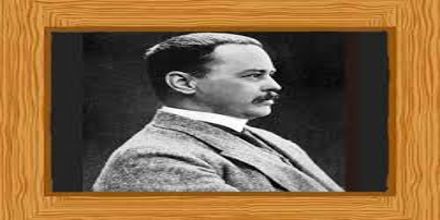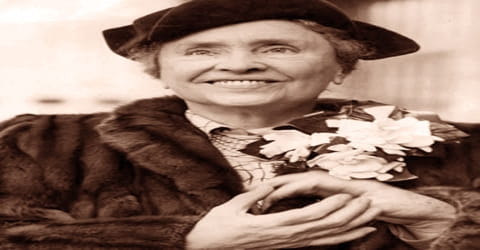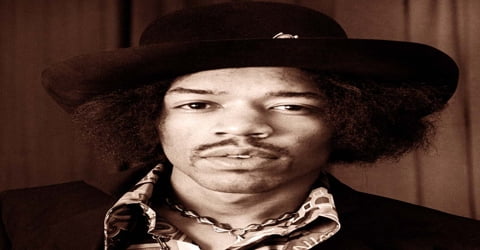Born: 13 May 1857; Almora, North-Western Provinces, British India
Died: 16 September 1932 (aged 75); London, England
Special Fields: Medicine
Nationality: British
Known for: Discovering that the malaria parasite is transmitted by mosquitoes
Notable awards: FRS (1901)
Nobel Prize in Physiology or Medicine (1902)
Albert Medal (1923)
Manson Medal (1929)
Sir Ronald Ross was born in India in 1857 to a Scottish Army Officer and his wife. He was educated in England and entered St Bartholomew’s Hospital Medical College in 1874. He took the examinations for the Royal College of Surgeons of England in 1879 and obtained the post of ship’s surgeon while studying for the Licenciate of the Society of Apothecaries, which allowed him to enter the Indian Medical Service in 1881. He held temporary appointments in Madras, Burma and Andaman Islands, all the while developing his interests in poetry, literature and mathematics. In 1892 he began his study of malaria and in 1895 began his correspondence with Sir Patrick Manson, then physician to the Seamen’s Hospital Society, who became the Medical Advisor to the Colonial Office and the founder of the London School of Tropical Medicine.
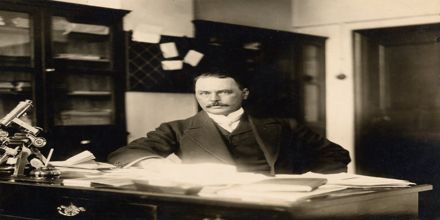
Early life and education
Ronald Ross was born in Almora, India, the eldest of ten children of Sir Campbell Claye Grant Ross, General in the British Indian Army, and Matilda Charlotte Elderton. At age eight he was sent to England to live with his aunt and uncle on the Isle of Wight. He attended Primary schools at Ryde, and for secondary education he was sent to a boarding school at Springhill, near Southampton, in 1869. From his early childhood he developed passion for poetry, music, literature and mathematics. At fourteen years of age he won a prize for mathematics, a book titled Orbs of Heaven which sparked his interest in mathematics. In 1873, at sixteen, he secured first position in the Oxford and Cambridge local examination in drawing. Although he wanted to become a writer, his father arranged enrollment at St Bartholomew’s Hospital Medical College in London, in 1874.
Career
During this active career, Ross’ interest lay mainly in the initiation of measures for the prevention of malaria in different countries of the world. He carried out surveys and initiated schemes in many places, including West Africa, the Suez Canal zone, Greece, Mauritius, Cyprus, and in the areas affected by the 1914-1918 war. He also initiated organizations, which have proved to be well established, for the prevention of malaria within the planting industries of India and Ceylon. He made many contributions to the epidemiology of malaria and to methods of its survey and assessment, but perhaps his greatest was the development of mathematical models for the study of its epidemiology, initiated in his report on Mauritius in 1908, elaborated in his Prevention of Malaria in 1911 and further elaborated in a more generalized form in scientific papers published by the Royal Society in 1915 and 1916. These papers represented a profound mathematical interest which was not confined to epidemiology, but led him to make material contributions to both pure and applied mathematics. Those related to «pathometry» are best known and, 40 years later, constitute the basis of much of the epidemiological understanding of insect-borne diseases.
In 1901 Ross was elected a Fellow of the Royal College of Surgeons of England and also a Fellow of the Royal Society, of which he became Vice-President from 1911 to 1913. In 1902 he was appointed a Companion of the Most Honourable Order of Bath by His Majesty the King of Great Britain. In 1911 he was elevated to the rank of Knight Commander of the same Order. In Belgium, he was made an Officer in the Order of Leopold II.
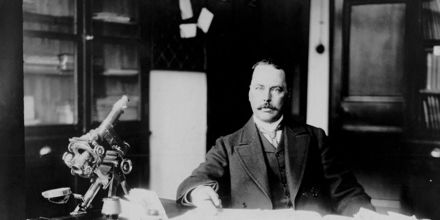
In 1902 a movement was set on foot to commemorate the valuable services rendered to the School of Tropical Medicine by its originator and Chairman, Sir Alfred Jones, by founding a Chair of Tropical Medicine in University College to be connected with the School. The movement was met with enthusiastic support, and an amount of money was quickly collected sufficient to found «Sir Alfred Jones’ Chair of Tropical Medicine». Ross was appointed to the Professorship in 1902 and retained the Chair until 1912, when he left Liverpool, and was appointed Physician for Tropical Diseases at Kings College Hospital, London, a post which he held together with the Chair of Tropical Sanitation in Liverpool. He remained in these posts until 1917, when he was appointed Consultant in Malariology to the War Office, his service in this capacity, and in special connection with epidemic malaria then occurring on combatant troops, being recognized by his elevation to the rank of Knight Commander, St. Michael and St. George, in 1918. He was later appointed Consultant in Malaria to the Ministry of Pensions. In 1926 he assumed the post of Director in Chief of the Ross Institute and Hospital of Tropical Diseases and Hygiene, which had been created by admirers of his work, and he remained in this position until his death. He was also a President of the Society of Tropical Medicine.
Major Works
Through these works Ross continued his great contribution in the form of the discovery of the transmission of malaria by the mosquito, but he also found time and mental energy for many other pursuits, being poet, playwright, writer and painter. Particularly, his poetic works gained him wide acclamation which was independent of his medical and mathematical standing.
Awards & Achievements
He received many honours in addition to the Nobel Prize, and was given Honorary Membership of learned societies of most countries of Europe, and of many other continents. He got an honorary M.D. degree in Stockholm in 1910 at the centenary celebration of the Caroline Institute. Whilst his vivacity and single-minded search for truth caused friction with some people, he enjoyed a vast circle of friends in Europe, Asia and America who respected him for his personality as well as for his genius.
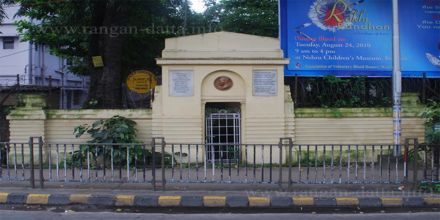
Personal Life
Ross married Rosa Bessie Bloxam in 1889. They had two sons, Ronald and Charles, and two daughters, Dorothy and Sylvia. His wife died in 1931, Ross survived her until a year later, when he died after a long illness, at the Ross Institute, London, on September 16, 1932.
Death
Ronald and Sylvia pre-deceased him too: Ronald was killed at the Battle of Le Cateau on 26 August 1914. Ross died at the hospital of his namesake after a long illness and asthma attack. He was buried at the nearby Putney Vale Cemetery, next to his wife.
